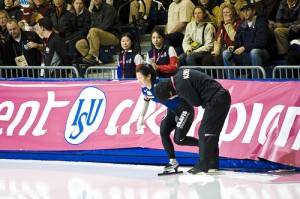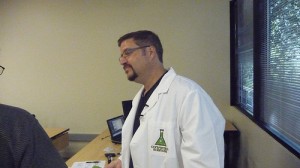 In a previous article I wrote about two valuable resources that professional athletes can use to manage and improve their lives.
In a previous article I wrote about two valuable resources that professional athletes can use to manage and improve their lives.
In part 2, I’ll focus on Fan Inc., a new resource that helps former NCAA injured athletes receive the medical attention they deserve and I’ll also dive further into Sportsdrive to see how their high tech development tool helps athletes reach their highest potential possible.
FAN, Inc. Foundation for Athletes in Need – We see the glory of athletes when they’re ‘in the zone’ and hitting their game like a Trojan. We see the sweet victories and think to ourselves: “what an exciting life.” What we often don’t see is the chronic physical pain many athletes endure for years after they’re finished playing.
FAN’s mission statement succinctly states, “To provide financial assistance to qualified former student athletes who are experiencing hardships related to an injury incurred while participating in an NCAA sanctioned activity.” FAN, Inc.’s goal is to assist under- and uninsured individuals in obtaining relevant, professional medical services.
As a grassroots effort, FAN is currently determining the extent of the problem. If you have knowledge of a former NCAA athlete with sports-related injuries who needs medical attention but is unable to secure care due to financial constraints, please visit the website and send Steve an email.
 Sportsdrive – As I highlighted in my original article, this innovative company consists of a highly educated, synergistic team who performs various levels of athlete assessments using a scientific approach specifically developed to evaluate sports performance and sports behavior.
Sportsdrive – As I highlighted in my original article, this innovative company consists of a highly educated, synergistic team who performs various levels of athlete assessments using a scientific approach specifically developed to evaluate sports performance and sports behavior.
Most athletes are aware of their physical strengths and weaknesses and spend considerable time building their strength areas. What’s often overlooked, however, is the awareness of their psychological limitations and strengths.
Andreas Frintrup, a member of Sportsdrive’s management team, is heading towards his Ph. D. on the measurement of Achievement Motivation in Sports. Andreas states: “our assessment and development tool helps athletes generate insights into their “inner athlete” which promotes better training and the ability to cope with their psychological profile. Nearly 80% of sports performance is not defined by endurance, muscles and technique but by mental skills. Our assessment helps athletes get better prepared for challenging situations.”
I asked Andreas: “once the assessment test is completed and evaluated, how do you utilize the high tech development tool to ensure the athlete will experience success in his/her sport?”
Andreas explains it this way: “the assessment results form the basis for further efforts: strengths will be discussed and maintained, weaknesses will become part of an individually designed training or coaching program. The latter requires a sports psychologist to work with the athlete – he or she will use the Sportsdrive assessment results to align the coaching to what the athlete really needs.”
One prime example of how this works in a real sports situation: A riffle athlete tended to over-exceed his training and ended up with less performance because he demanded too much from himself. The SportsDrive Assessment helped him to discover that his goal-setting was wrong: Now he sets simpler but still challenging goals and is more focused to achieve them rather to become the best riffle-athlete in the world right away. He just qualified for the Olympics in London.
As time moves along, I’ll be covering other vital resources that athletes can utilize to improve their on-field game and their life transitions. In the meantime, stay positive, stay adventurous…stay you.

